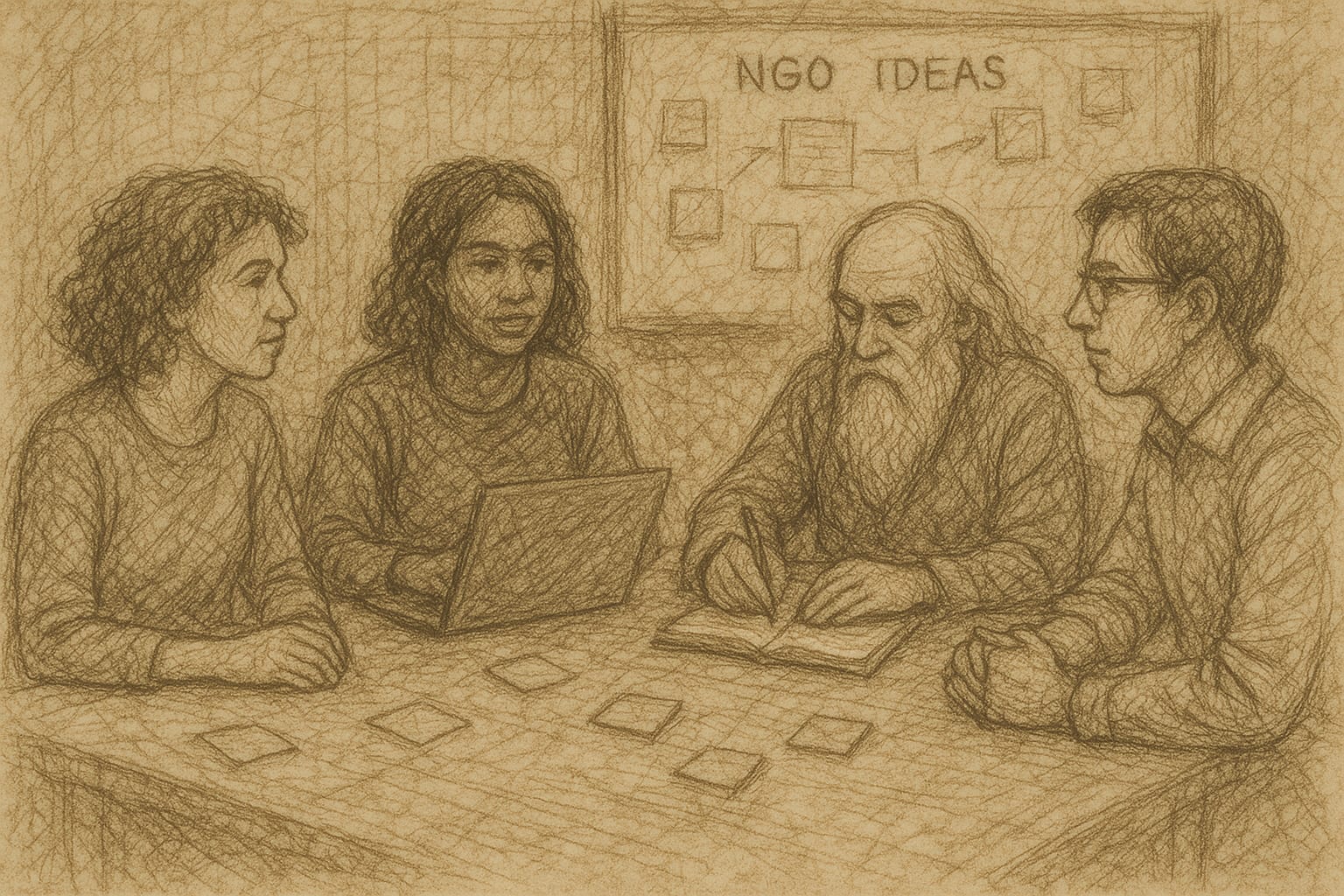The AIM incubation program was always built a little like the incubation program I wish I'd had when I was much younger and founding Charity Science Outreach or Charity Science Health. For me, founding was going to happen with or without a program, and yet even 10 years and three projects into founding, I'm still seriously considering going through my own program if I found again (I'm considering both the AIM charity program and the AIM Founding to Give program).
I think the value proposition for new founders of an incubation program is fairly clear at this point, but I thought it might be interesting for people to read about why I think even more experienced founders can gain quite a lot from the process.
Cohort: A big benefit I see personally from going through the AIM program is being part of a cohort. I'm already a member of the AIM community and have a sense of who my ideal co-founders would be, so although those are large benefits for many, they're smaller for me. However, I think founding alongside multiple other charities in the same batch would have significant benefits. I think I could bring useful learnings and skills to the group and speed up other projects in my cohort. I also think others would bring valuable perspectives to my projects even if they're not co-founders (e.g., as board members, advisors, or connectors). At this point in my career, I might not need these connections to get started, but it never hurts to have more highly talented, highly compassionate people you've worked with in depth.
Self-awareness: Knowing yourself is hard. Most people can rattle off some strengths and weaknesses, but this is a far cry from knowing exactly how you work with others. I think the AIM program is really good at developing a more in-depth understanding of where you excel and where you need a team around you to thrive. In dance classes, they often get you to dance with multiple partners so you can see what mistakes your partner compensates for, and you learn more thoroughly how to execute the moves. I think the same is likely true in founding—working with other talented people on projects will give me a more well-rounded view of how to be a good founder and teammate broadly.
Even things you know, you forget: Content-wise, it might seem redundant for me to read a book that I wrote, but I think it's really easy to forget to apply even the best practices you know you should. A refresher on key content when founding can be highly useful (it's been seven years since I last founded something and about five since I worked on major content for the program—a lot can be forgotten in that time).

I guess at the end of the day, I think the overall impact is higher if I go through an incubator than if I don't, even if I'd found anyway. I also don't think I'm alone in this thought, as some of the most impressive co-founders I've spoken to have had the exact same perspective (both about going through an incubator generally and going through AIM more specifically). I wanted to write this post mostly to put going through an incubator on the radar for folks who might not need one but could still benefit from the flow-through effects.
If this struck a chord with you, you can apply for the NGO program or for-profit program (or both). Who knows, we might even end up in the same cohort.

Would you consider applying to YC?
I imagine it only makes sense for certain types of non-profits, like OWID.
Yes but after founding to give or EF type programs.
YC does have a nonprofit program: https://www.ycombinator.com/nonprofits/
List of nonprofits YC have invested in, including 80,000 Hours: https://www.ycombinator.com/companies?nonprofit=true
It seems like they haven't accepted any non-profit since 2022, around the time Garry Tan became YC's CEO. Garry has been very vocal against EA (specially AI Safety) on Twitter.
This really resonates! I love the way you framed the value of an incubator not just for new founders, but for experienced ones too. Even when you’ve founded before, having a structured program, a cohort of talented peers, and intentional reflection can accelerate learning, surface blind spots, and strengthen collaboration in ways that solo experience can’t always provide.
I especially appreciated your point about self-awareness, understanding how you work with others and where you truly excel is such a subtle but high-leverage skill. And yes, revisiting even content we “already know” can make a huge difference when it comes to applying it effectively in the moment.
Thanks for sharing this perspective, it’s a great reminder that growth and impact often come from revisiting, refining, and collaborating, even for seasoned founders.